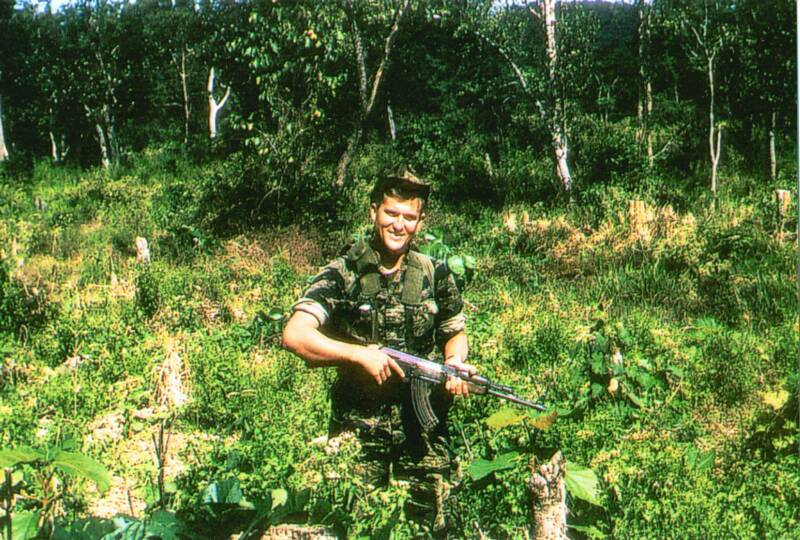What was your role in the Vietnam War?
I was a US Army captain assigned to Fifth Special Forces Group. I was an undercover Military Intelligence branch officer assigned to Detachment B-57.
Where were you stationed and how long did you serve for?
I was based in Saigon in a safe house for six months and debriefed a supposed defector from the Cambodian Army, who may have been a double agent (and was murdered in a celebrated murder case after I had left Vietnam) and trained and lived with young Cambodian anti-Communists of the Khmer Serei (Free Khmers), whom I organized, trained, and placed by helicopter infiltration in the Tri-Border area for intelligence collection. For four months I was based at Dak To Special Forces A-camp 15 miles east of the Tri-Border to organise intelligence collection against Cambodia.
How long before you got the call to sign up?
I am a graduate of West Point and volunteered to serve in Vietnam.
Did you have much contact with the South Vietnamese?
Yes. Interpreters and Montagnard tribesmen.
Did you have a good rapport with your battalion?
My unit was a B team of Special Forces and I still maintain contact with four other officers with whom I served. They were all great men and patriots. A Special Forces Green Beret Combat Medic Jimmy Hill saved my life though wounded himself. Two Special Forces NCOs brought me to safety from my place of wounding. All brave courageous American soldiers.

Was it all fighting or did you have to engage in other non-violent operations?
My cover was civic action so I visited Montagnard villages to recruit my agents, brought medics to treat the natives, obtained clothes and toys for them, and procured material to build a school at my camp for the Montagnard children.
Could you describe what happened in the 17 June 1967 attack?
A regular North Vietnamese Army battalion came in to our area from a base camp in Cambodia a few days before and ambushed two of our patrols. My commanding officer ordered me to leave the camp at 0930 hours that day when he would be coming by plane from Saigon to pick me up. I was the Special Forces person on the alert during the 4-6am time block when that enemy unit, having moved fast through the triple canopy jungle, began a heavy mortar and rocket barrage on our camp.
I began to grab our people to man our mortar positions for return fire and was attempting to spot the enemy positions when a mortar round landed about eighteen inches to my left rear, causing my left leg below the knee to be totally traumatically amputated. The right leg was fractured in five places and it too was amputated ten days later.
How did you get home after the incident?
I was medevacked back to Brooke Army Medical Center in San Antonio at Fort Sam Houston in seven days.
How did you adjust to life back home?
In the eighth month of my fifteen month stay at Brooke I suffered from what was later called Post Traumatic Stress and was treated in a closed psychiatric ward for fourteen weeks. I had to be seen for psychotherapy and antidepressants for seven years until I matured in my Christian faith by the grace of God and was able to stop psychotherapy. I have been pill-free for 40 years!
Do you still look back on Vietnam now?
It never leaves me! I have extensive public speaking opportunities to relate my war and wounding story as well as my faith walk back to a balanced, joyful, and fulfilling life. I have a lay ministry (www.combatfaith.com) to help active duty and war veterans to know of my example of healing from my war to help them heal from their wars.
Allen B. Clark has developed, written, and printed a tract available to be sent out to all that request it at [email protected]. He has written two books which have been published by international publishing companies; his autobiography ‘Wounded Soldier Healing Warrior’ was published in 2007 by Zenith Press and ‘A Collection of Stories About the Vietnam War’ was published by Casemate Publishers in 2012.
For more on the Vietnam War, pick up the new issue of History of War or subscribe now and save 30% off the cover price. You can also check out our interview with US Army field nurse Sharon Bystran here.

